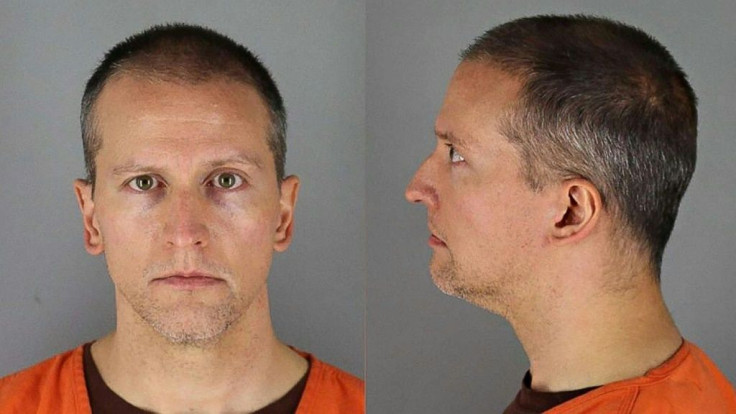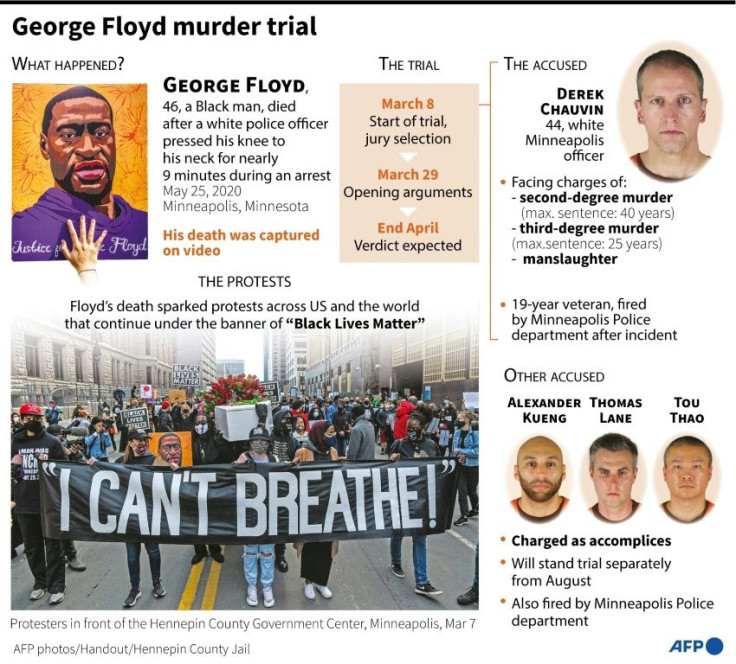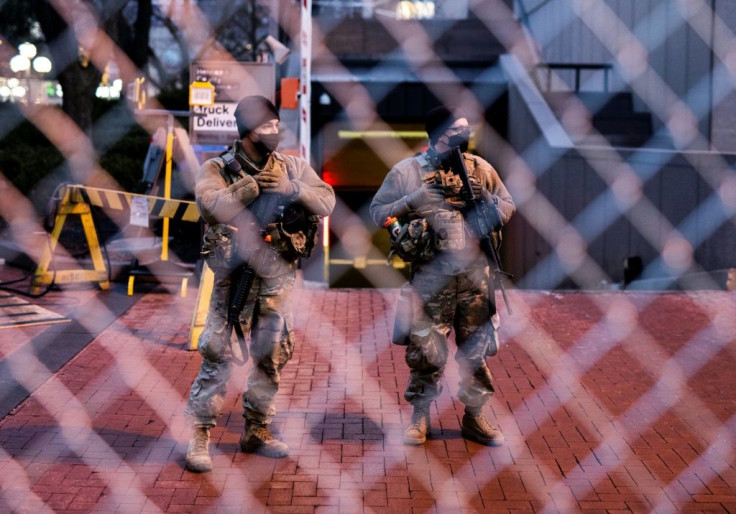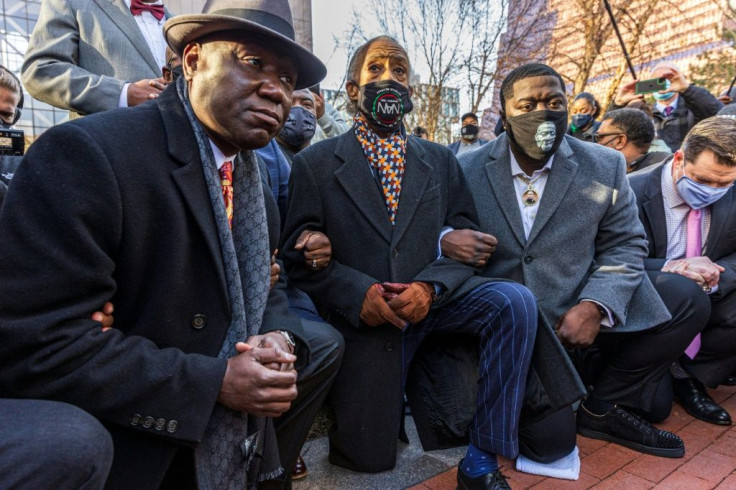Jury In George Floyd Murder Trial Shown Harrowing Video Of His Death
The stomach-churning video of George Floyd's death under the knee of a Minneapolis policeman took center stage as arguments in the politically charged murder trial opened Monday.
Prosecutors sought to demonstrate that white then-police officer Derek Chauvin had no justification for using the dangerous move for some nine minutes on Floyd, an African-American man, last May during an arrest on a minor charge.

But Chauvin's attorney countered that he would prove that Floyd was on drugs, forcing officers to take tough action, and that his death was caused by the drugs and a medical condition rather than asphyxiation.
"Nine minutes and 29 seconds. That's how long that went on," Minnesota state prosecutor Jerry Blackwell said of the amount of time Chauvin knelt on Floyd's neck as he lay handcuffed on a Minneapolis street.

Floyd was originally arrested on May 25, 2020, for passing a counterfeit $20 bill. But the situation worsened after officers struggled to put him in a police car and instead forced him to the ground, handcuffed.
In the video, Floyd moans and gasps for breath while bystanders urge Chauvin to let up.

He said, "I can't breathe" 27 times, Blackwell said, before being loaded, unconscious, on a stretcher by medics and taken to hospital, where he was declared dead.
Chauvin, a 19-year veteran of the police force, is charged with murder and manslaughter and faces up to 40 years in prison if convicted of the most serious charge -- second-degree murder.
But his attorney, Eric Nelson, told the jury of nine women and five men that Chauvin adhered to policing standards.

"You will learn that Derek Chauvin did exactly what he had been trained to do," Nelson said.
"The evidence will show that Mr. Floyd died of a cardiac arrhythmia that occurred as a result of hypertension, his coronary disease, the ingestion of methamphetamine and fentanyl, and the adrenaline flowing through his body, all of which acted to further compromise already compromised parts," he said.

Floyd's death, along with the bystander video of the long minutes that Chauvin held him on the ground, sparked a national outrage, with widespread protests and rioting against police brutality towards African Americans.
The trial was broadcast live on television, and the White House said President Joe Biden was paying attention.
"He certainly will be watching closely, as Americans across the country will be watching," White House spokeswoman Jen Psaki said.
"At the time of George Floyd's death, he talked about this as being an event that really opened up a wound in the American public."
"The whole world is watching," said Ben Crump, a civil rights lawyer and attorney for the Floyd family ahead of opening statements.
"Today starts a landmark trial that will be a referendum on how far America has come in its quest for equality and justice for all," Crump said.
Chauvin, 44, since fired from the city's police, was seated at the defense table, dressed in a grey suit with a blue shirt and tie. He looked up periodically at the video and jotted down notes on a yellow legal pad.
Due to Covid-19 protocols, only one member of Floyd's family was allowed in the courtroom, while others had to watch by video feed in a separate room.
Both Blackwell and Nelson sought to play down the broader ramifications of the trial.
Blackwell said he was not trying to put all police on trial. "This case is about Mr. Derek Chauvin," he told the jury.
"There is no political or social cause in this courtroom," said Nelson.
With the first three witnesses, Blackwell appeared to build a case that Chauvin's use of force was extraordinary and dangerous to any observer.
The first witness, 911 emergency dispatcher Jena Lee Scurry, said she called another police officer to raise the alarm after watching Chauvin's actions over a closed circuit television feed.
Donald Williams, a 33-year-old martial arts instructor who was on the scene, said he told Chauvin at the time that his knee on Floyd's neck was the equivalent of a dangerous "blood choke" used in wrestling and fighting.
"You could see him actually trying to gasp for air," he said of Floyd.
Crump said Chauvin's defense attorney is "going to try to assassinate the character of George Floyd."
"But this is the trial of Derek Chauvin," he said. "The facts are simple. What killed George Floyd was an overdose of excessive force."
© Copyright AFP 2024. All rights reserved.





















